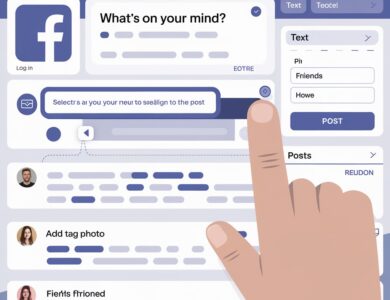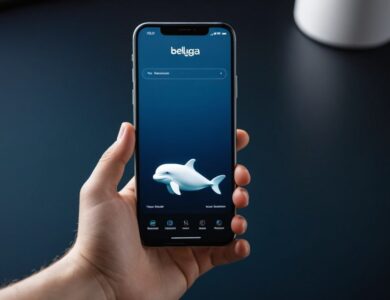
In today’s digital age, having a reliable phone service is crucial. With numerous options available, consumers can now choose from a variety of free phone plans that cater to their needs.
free phone service
These plans offer a cost-effective solution for individuals and families looking to stay connected without breaking the bank. By exploring the different free phone service plans, users can enjoy benefits such as unlimited talk, text, and data, all without the burden of a hefty monthly bill.
Table of Contents
Key Takeaways
- Various free phone service plans are available, offering different benefits.
- Users can save money by switching to a free phone plan.
- These plans often include unlimited talk, text, and data.
- Consumers can choose a plan that best fits their needs.
- Staying connected has never been more affordable.
What Makes a Phone Service Truly Free
Understanding what makes a phone service truly free requires a closer look at the underlying business models and definitions of “free.” The term “free” can be interpreted in various ways, and phone services often employ different strategies to offer seemingly free services.
The Different Definitions of “Free”
The concept of “free” can be multifaceted. In the context of phone services, it might mean that users are not charged for making calls or sending texts. However, it could also imply that the service is supported by advertisements or that there’s a limit to the data or minutes available for free.
Some services might offer a basic plan for free, with optional premium features at a cost. Understanding these nuances is crucial for consumers to make informed decisions.
Business Models Behind Free Services
Several business models enable phone services to be offered for free. One common approach is ad-supported services, where revenue is generated through advertisements displayed to users.
Another model involves data collection and analytics, where user data is used to generate revenue through targeted advertising or sold to third parties.
| Business Model | Description | Revenue Source |
| Ad-Supported | Services are free; users see ads. | Advertisers |
| Data Collection | User data is collected and analyzed. | Targeted Advertising, Data Sales |
| Freemium | Basic services are free; premium features are paid. | Subscription Fees for Premium Services |
By understanding these business models and definitions of “free,” consumers can better navigate the available options and choose a service that meets their needs.
How Free Phone Service Works
Understanding how free phone services work can help you make the most out of these cost-effective communication solutions. Free phone services rely on advanced technologies and innovative business models to provide users with affordable calling and texting options.
Technology Behind Free Calling
At the core of free phone services is Voice over Internet Protocol (VoIP) technology, which enables voice communications over the internet. VoIP services, such as those offered by free calling apps, allow users to make calls and send texts using their internet connection rather than traditional cellular networks
Wi-Fi vs. Cellular Networks
Free phone services often utilize Wi-Fi networks to provide reliable and cost-effective connectivity. Wi-Fi networks offer several advantages, including wider coverage indoors and potentially faster data speeds. However, cellular networks are still essential for mobility and coverage in areas without Wi-Fi.
| Network Type | Advantages | Disadvantages |
| Wi-Fi | Faster data speeds, cost-effective | Limited mobility, coverage dependent on Wi-Fi availability |
| Cellular | Widespread coverage, mobility | Data speed variability, potential for higher costs |
By leveraging both Wi-Fi and cellular networks, free phone services can offer a robust and flexible communication solution. Understanding the strengths and limitations of each network type can help users optimize their usage.
Types of Free Phone Service Available Today
Today, consumers can choose from a range of free phone services, including ad-supported, government-subsidized, and freemium models. These services cater to different needs and preferences, offering a variety of options for those seeking free or low-cost phone plans.
Ad-Supported Free Plans
Ad-supported free plans are funded by advertisements displayed on the user’s device. These plans are often free or low-cost and can include features like calling, texting, and data. For example, TextNow offers ad-supported free plans with unlimited calling and texting.
The benefits of ad-supported plans include:
- Free or low-cost service
- Unlimited calling and texting
- Access to data services
Government-Subsidized Programs
Government-subsidized programs are designed to provide affordable phone services to low-income households. These programs are funded by the government and offer discounted or free phone services. Lifeline is a notable government-subsidized program that provides affordable phone services to eligible households.
To be eligible for government-subsidized programs, households typically need to meet certain income requirements or participate in specific government assistance programs.
Freemium Service Models
Freemium service models offer a combination of free and paid services. Users can access basic services for free, while premium features require a subscription. FreedomPop is an example of a freemium service model that offers free plans with optional premium upgrades.
The benefits of freemium models include:
| Service | Free Features | Premium Features |
| FreedomPop | Free calling and texting | Additional data, international calling |
| Google Voice | Free calling and texting | Advanced features like voicemail transcription |
In conclusion, the types of free phone services available today cater to diverse needs and preferences. By understanding the characteristics of ad-supported, government-subsidized, and freemium models, consumers can make informed choices about their phone services.
TextNow: Ad-Supported Free Calling and Texting
TextNow is revolutionizing the way we think about phone service with its ad-supported free calling and texting. This service has gained popularity for its innovative approach to providing free telecommunications.
Overview
TextNow offers a unique service that allows users to make calls and send texts for free, supported by advertisements. This model enables users to enjoy essential phone services without the burden of monthly fees.
Pros
- Free Calling and Texting: Enjoy unlimited calling and texting without paying a dime.
- Ad-Supported: The service is supported by ads, making it free for users.
Cons
- Advertisements: Users must tolerate ads while using the service.
- Limited Features: Some advanced features may not be available in the free version.
Features and Coverage
TextNow boasts a range of features, including customizable phone numbers and unlimited calling and texting. Its coverage is extensive, leveraging a combination of Wi-Fi and cellular networks to ensure reliable service.

TextNow Features
Device Compatibility
TextNow is compatible with a variety of devices, including smartphones and tablets. Users can download the app to start enjoying free calling and texting services.
FreedomPop: Basic Free Service with Premium Options
For those seeking flexible phone plans, FreedomPop provides an attractive option with its basic free service and premium upgrades. FreedomPop operates on a freemium model, offering users a taste of its services for free while charging for premium features.
Overview
FreedomPop is known for its innovative approach to telecommunications, providing a blend of free and paid services. Its basic plan includes free calling and texting, making it an appealing choice for budget-conscious users. The service utilizes VoIP technology, allowing for calls and texts over Wi-Fi or cellular networks.
Pros
- Flexible plans that cater to different user needs
- Free basic services, including calling and texting
- Compatibility with a range of devices
Cons
- Limited data allowances on the free plan
- Potential for additional charges on premium services
- Reliance on Wi-Fi for optimal service quality
Data Allowances and Restrictions
FreedomPop’s free plan comes with limited data allowances. Users can enjoy free services up to a certain data limit, after which speeds may be throttled or additional charges may apply. It’s crucial for users to monitor their data usage to avoid unexpected charges.
Hidden Fees to Watch For
While FreedomPop’s basic service is free, there are potential hidden fees to be aware of, particularly when opting for premium services or exceeding data limits. Users should carefully review the terms of service to understand all potential charges. As one user noted, “Understanding the fine print is key to avoiding surprise bills.”
“The key to making the most of FreedomPop’s services is understanding the balance between free and premium offerings.”
— FreedomPop User Review
Google Voice: Free Calling with Your Google Account
If you’re seeking a free calling solution, Google Voice is an innovative service that integrates well with other Google services. Google Voice allows users to make free calls using their Google account, providing a convenient and cost-effective way to stay connected.
Overview
Google Voice is a telephony service that provides users with a unique phone number that can be used to make and receive calls, as well as send and receive text messages. It operates over the internet, using either Wi-Fi or cellular data, making it a versatile option for those with reliable internet access.
Pros
- Free Calls: Google Voice offers free calls within the United States and Canada, making it an excellent choice for domestic communication.
- Customizable: Users can customize their voicemail greetings and choose how calls are forwarded to their devices.
- Integration: Seamless integration with other Google services, such as Gmail and Google Calendar, enhances productivity.
Cons
- Limited International Coverage: While Google Voice is free for domestic calls, international calls can be costly, and coverage may be limited in some countries.
- Dependence on Internet: The quality of calls depends on the stability of the internet connection, which can be a drawback in areas with poor connectivity.
Features and Limitations
Google Voice offers a range of features, including call forwarding, voicemail transcription, and text messaging. However, it’s essential to be aware of its limitations, such as the potential for data consumption over cellular networks and the requirement for a Google account.
Integration with Other Google Services
One of the significant advantages of Google Voice is its integration with other Google services. This allows users to manage their communications more effectively, using services like Gmail for voicemail transcription and Google Calendar for scheduling calls.
By leveraging these integrations, users can enhance their productivity and streamline their communication processes, making Google Voice a compelling choice for those already invested in the Google ecosystem.
Best Free Phone Service Programs for Low-Income Households
The Lifeline program and other initiatives provide essential phone services at no cost to eligible low-income individuals. These programs are designed to ensure that everyone has access to vital communication services, regardless of their financial situation.
Lifeline Program Overview
The Lifeline program is a government-backed initiative that offers discounted or free phone services to low-income households. Established in 1985, it aims to bridge the communication gap by providing affordable phone and internet services.
Assurance Wireless
Assurance Wireless is a popular provider under the Lifeline program, offering free cell phone services, including talk, text, and data. Customers can enjoy a free Android smartphone with various plans.
Pros
- Free phone and monthly service
- Variety of smartphones available
- Generous data allowances
Cons
- Limited customer service
- Coverage varies by state
SafeLink Wireless
SafeLink Wireless is another well-known Lifeline program provider, offering free cell phone service with a range of features. Customers can choose from various plans that suit their needs.
Pros
- Multiple plan options
- Free phone and service
- Nationwide coverage
Cons
- Data speeds can be slow
- Limited international coverage
Eligibility Requirements
To qualify for these programs, applicants must meet specific income guidelines or participate in certain government assistance programs, such as Medicaid or SNAP.
Documentation is required to prove eligibility, and applications can be submitted online or through participating providers.
Talkatone and Other VoIP Free Calling Apps
In the realm of free calling apps, Talkatone stands out as a prominent VoIP service provider. With the increasing demand for cost-effective communication solutions, VoIP technology has become a game-changer.
Overview
Talkatone is a popular VoIP app that offers free calling and texting services. It operates over Wi-Fi or data networks, making it an attractive option for those looking to reduce their phone bills.
Pros
- Free Calling and Texting: Talkatone offers free calling and texting services to its users.
- Wi-Fi Calling: The app allows for Wi-Fi calling, which can be particularly useful in areas with poor cellular coverage.
Cons
- Ad-Supported: The free services are ad-supported, which might be a drawback for some users.
- Data Consumption: VoIP services can consume data, potentially leading to higher data bills if not monitored.
Features and Limitations
Talkatone offers a range of features, including free calling, texting, and voicemail. However, its functionality is dependent on a stable internet connection. The quality of calls can vary based on the strength of the Wi-Fi or data network.

Talkatone VoIP free calling app
Comparison with Other VoIP Services
When compared to other VoIP services like Google Voice and FreedomPop, Talkatone offers competitive features. However, the choice between these services depends on individual needs and preferences. Users should consider factors like coverage, data allowances, and additional features when making their decision.
Common Limitations of Free Phone Service
The appeal of free phone services is undeniable, but understanding their limitations is crucial for a seamless user experience. While these services can offer significant benefits, they are not without their drawbacks.
Coverage and Reliability Issues
One of the primary concerns with free phone services is their coverage and reliability. Many of these services rely on specific networks or technologies, which can lead to variability in service quality. For instance, services that use Wi-Fi calling may experience dropped calls or poor connectivity in areas with weak internet signals.
Data Restrictions
Data restrictions are another limitation. Many free services impose data caps or throttle speeds after a certain amount of usage, which can hinder the user experience, especially for those who rely on their phones for data-intensive activities.
Customer Service Quality
The quality of customer service can also vary significantly among free phone service providers. Some may offer robust support, while others may leave users struggling to resolve issues.
Privacy Considerations
Lastly, privacy considerations are a critical concern. Some free services may collect and monetize user data, raising questions about how personal information is handled.
| Limitation | Description | Impact |
| Coverage Issues | Variability in network coverage | Dropped calls, poor connectivity |
| Data Restrictions | Data caps or throttled speeds | Slower data access, limited usage |
| Customer Service | Variable support quality | Difficulty resolving issues |
| Privacy Concerns | Data collection and monetization | Potential for privacy breaches |
How to Choose the Right Free Phone Service for Your Needs
Choosing the right free phone service involves more than just picking a plan; it requires understanding your needs and the fine print. With so many options available, making an informed decision can seem daunting. However, by assessing your usage requirements, comparing available options, reading the fine print, and testing before committing, you can find a service that meets your needs.
Assessing Your Usage Requirements
Before selecting a free phone service, it’s crucial to understand your usage patterns. Consider how often you make calls, send texts, and use data. If you’re a heavy user, you’ll need a service that offers generous allowances or unlimited usage. On the other hand, if you’re a light user, a more basic plan might suffice.
Comparing Available Options
Once you have a clear understanding of your needs, compare the available free phone services. Look at the features offered by each provider, such as coverage area, data speeds, and additional perks like international calling or streaming perks. Services like TextNow and FreedomPop are popular options, but it’s essential to evaluate how their offerings align with your usage requirements.
Reading the Fine Print
Before committing to a free phone service, it’s vital to read the fine print. Understand any limitations, such as data throttling, ad-supported models, or hidden fees. Being aware of these details can help you avoid unexpected charges or service disruptions.
Testing Before Committing
Many free phone services offer trials or basic plans that you can test before fully committing. Take advantage of these options to gauge the service’s reliability, coverage, and overall quality. This hands-on experience will help you make a more informed decision.
By following these steps, you can confidently choose a free phone service that meets your needs and provides a reliable connection.
Conclusion
As we’ve explored throughout this article, various free phone service plans are available, each with its benefits and limitations. From ad-supported models like TextNow to government-subsidized programs such as Lifeline, there’s a range of options to suit different needs.
When choosing a free phone service, it’s essential to assess your usage requirements, compare available options, and read the fine print. Understanding the technology behind free calling, such as Wi-Fi vs. cellular networks, can also help you make an informed decision.
In conclusion, free phone service plans can be a cost-effective solution for those looking to stay connected. By considering the features, coverage, and limitations of each plan, you can select the best option for your needs and enjoy reliable, free phone service.
FAQ
What are the different types of free phone service plans available?
There are several types of free phone service plans, including ad-supported plans, government-subsidized programs, and freemium service models, each with its own characteristics and benefits.
How do free phone services work without charging users directly?
Free phone services often rely on business models such as advertising revenue, data collection, or partnerships with other companies to generate income, allowing them to offer services without direct charges.
What is the difference between Wi-Fi and cellular networks for free phone services?
Wi-Fi networks use internet connectivity to enable free calling and texting, while cellular networks rely on traditional cell towers; understanding the differences is crucial for choosing the right service.
Are there any hidden fees associated with free phone services?
Some free phone services may have hidden fees, such as charges for premium features, data overages, or specific types of calls; it’s essential to read the fine print before signing up.
How do I determine if I’m eligible for government-subsidized phone programs?
Eligibility for government-subsidized phone programs, such as Lifeline, typically depends on income level, participation in other government assistance programs, or other factors; checking the specific requirements is necessary.
Can I use free phone services internationally?
International coverage varies among free phone services; some may offer international calling or texting, while others may not; checking the service’s coverage and rates is crucial.
How do VoIP services like Talkatone compare to traditional phone services?
VoIP services use internet connectivity to make calls, offering features like free calling and texting, but may have limitations in terms of reliability and coverage compared to traditional phone services.
What are the privacy considerations when using free phone services?
Free phone services may collect user data, which can raise privacy concerns; understanding a service’s data collection policies and practices is essential for protecting user privacy.
Can I switch between different free phone services if I’m not satisfied?
Yes, users can typically switch between different free phone services; however, it’s essential to understand the terms and conditions, including any potential penalties or data transfer issues.
How do I assess my usage requirements for choosing a free phone service?
Assessing usage requirements involves considering factors like calling and texting habits, data needs, and coverage requirements to choose a service that meets individual needs.




